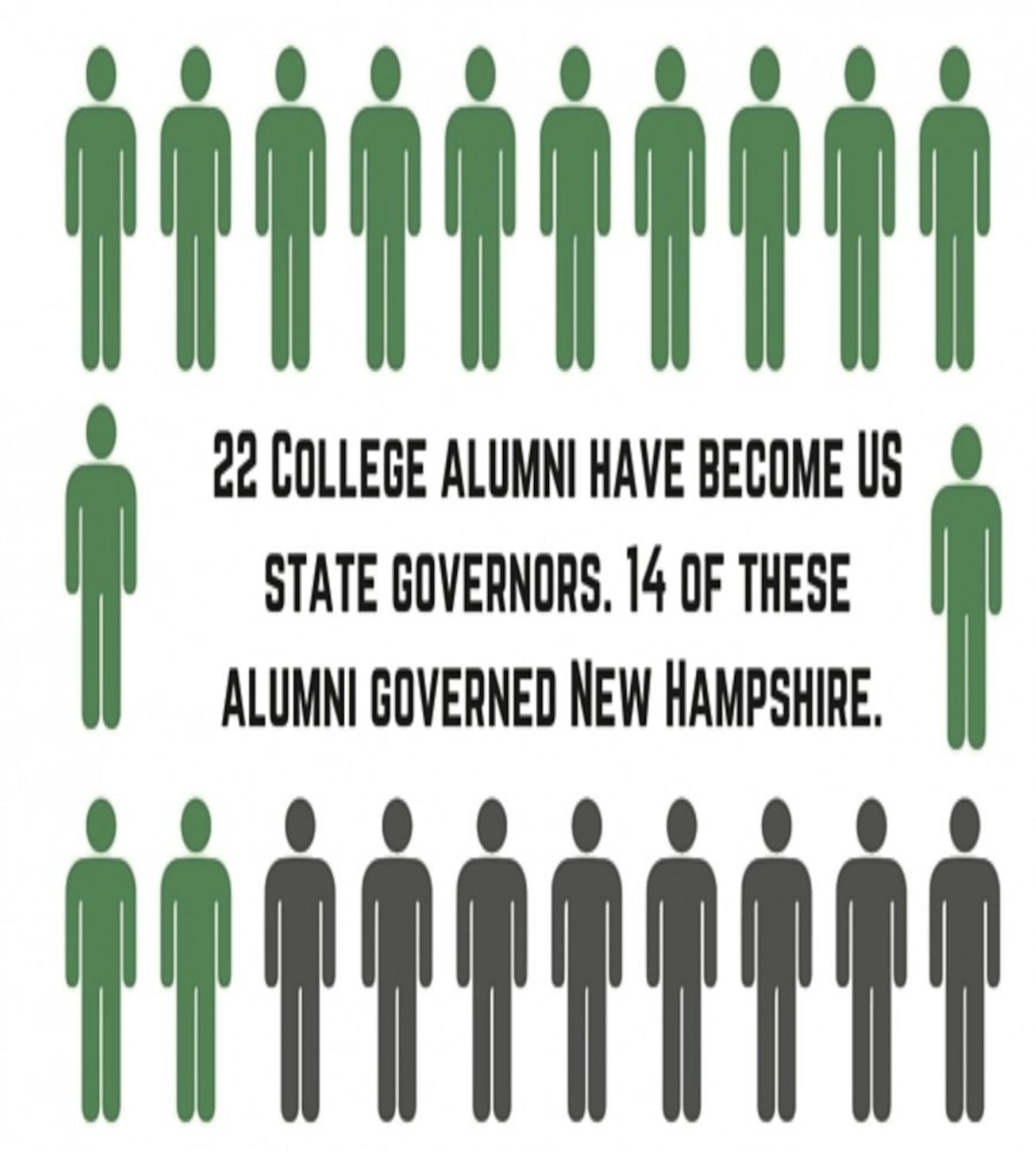Priya Ramaiah / The Dartmouth Senior Staff
One hundred and seventy College alums have served in the United States Congress. Fourteen have served as New Hampshire state senators and 27 serving in the House of Representatives for New Hampshire. Fourteen alumni have gone on to become governors of New Hampshire, while an additional eight have served as governors of states beyond New Hampshire.
Matt Trojan, the communications director for the Van Ostern campaign, referred to Van Ostern’s experience as an employee of Stonyfield, marketing director for Southern New Hampshire University, and an elected member in 2001 of the Executive Council of New Hampshire. Trojan said that Van Ostern’s interests developed while an employee of the Tuck School of Business, when he decided to become a student there as well. Van Ostern’s interest in politics is rooted in the economy and business, Trojan said, and how to best move New Hampshire forward.
In a statement from his campaign, Connolly recalled his time at Dartmouth as a formative experience. Connolly’s career in public service began when he was a sophomore at the College, when he commuted to Concord as a state representative.
Government professor Brendan Nyhan, who focuses on the U.S. government, said that he hopes that the government department inspires students to go on to public service and participation in public life, just as is the case with Van Ostern and Connolly.
“We aren’t training anyone how to run a campaign. We study politics like bacteria in the petri dish,” Nyhan said. “At the same time, students have many opportunities to see the human side of politics, being in New Hampshire with all the officials who come to campus. They make the topics of study seem more real and achievable.”
Nyhan also remarked that he often speaks to students interested in getting involved in politics and policy through campus programs such those run by the Dickey Center for International Understanding or the Rockefeller Center for Public Policy.
Last term, candidates including John Kasich, Chris Christie, Bernie Sanders and Hillary Clinton all came to Hanover for campaign events.
Jonah Cohen ’19 said that being able to get involved with campaigns during his freshman fall was a special opportunity.
“I think the ’19s are uniquely positioned to be involved in politics,” he said. “I got to be involved in the fall, and I can imagine getting a job as the 2020 election gears up right upon graduation.”
As a volunteer for the Sanders campaign, Cohen campaigned door-to-door, posted on social media and joined the Bernie Sanders campaign group on campus.
“It was interesting to see all the sides of how a campaign works, not just the broader, macro stuff you read about in The New York Times,” Cohen said.
He said hopes to get involved in Clinton’s campaign in the future.
Once every four years during an election is not the only way Dartmouth students can get involved. David Tramonte ’18 is currently interning for Massachusetts Gov. Charlie Baker through a program run by the Rockefeller Center.
Tramonte was also a First-Year Fellow, another program offered through the Rockefeller Center. First-Year Fellows work in Washington D.C. on public policy issues in a fellowship with individual Dartmouth alumni. Tramonte credited his experience there as what motivated him to want to intern in government. He also stated that a public policy course he took freshman winter “on a whim” encouraged him to pursue more opportunities to become politically involved. As a First-Year Fellow Tramonte worked on nuclear non-proliferation policy as the Iran Nuclear Deal was being negotiated.
“Public policies, in my opinion, are case studies that matter,” Tramonte said. “It is problem solving that will benefit the public.”
Having gone from Washington to the state level, Tramonte thought he noticed some differences between the two.
“When I was in Washington there was a lot of partisanship and stagnation, at the state level it is more practical issues that you are dealing with,” Tramonte said. “It’s about the most pragmatic solutions to problems.”




